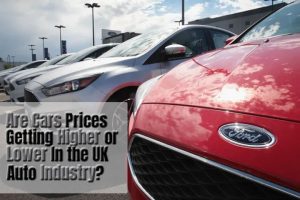According to statistics gathered from reviews about car companies in the UK, the coronavirus pandemic forced UK car sales down to the lowest level since 1992 in 2020. Since the Second World War, it is the largest annual decline, amid increasing electric car sales. Sales declined by 29 per cent to around 1.63m during the year, preliminary figures from the Society of Motor Manufacturers and Traders (SMMT) validated this.
The first lockdown implemented in March, the critical month when a change in number plates typically boosts sales, was the primary cause of the decline. From late March until June, car showrooms in England were closed, forcing businesses to switch quickly to online sales and social distancing in factories.
“It was a very, very difficult year,” Mike Hawes, chief executive of the SMMT, said. “These are unprecedented levels [of disruption], and they have continuously challenged the industry.” As recently as 2016, revenue peaked at 2.7m, but 2020 marked the first time that overall sales dropped below 2m since 2011. Hawes said that last year’s national lockdown makes it impossible for sales in 2021 to get back above that amount again.
Although diesel and petrol vehicles’ sales declined abruptly, battery electric car sales nearly tripled to just under 110,000 during 2020. And it accounts for around 6.6 per cent of total sales. The addition of plug-in hybrid electric cars that combine internal combustion engines with externally charged batteries meant that the market share of plug-in vehicles for the first time grew above 10 per cent.
After the UK government in November 2020 said it would prohibit the selling of conventional internal combustion engine cars by 2030, the industry is rushing to boost electric cars’ sales even more rapidly. In nine years, we have to go from one out of 10 [plug-ins] to 10 out of 10,” said Hawes.” “That is the challenge which we are facing.”
UK factories have faced the challenge of tense trade negotiations with the EU during 2020, with a trade agreement reached only on Christmas Eve. The deal suggests that the industry has avoided tariffs or quotas on cross-channel trade for most cars or components. In contrast, carmakers may have to adhere to significant new rules of origin paperwork, emphasizing battery technology sourcing from the UK or the EU.
Hawes said that the agreement was a massive relief for carmakers, despite not matching the advantages of access to the EU’s single market without friction. However, he added that the industry was closely monitoring the disruption of imports of parts in the coming weeks in new border controls.
According to a report on BritainReviews, Carmakers have already experienced expensive disruption related to important issues. Japanese carmaker Honda said in 2020 that due to delays, it was stopping production at its Swindon plant for two days. In July 2020, Honda should shut its factory permanently. Before Christmas, Honda, Toyota and Jaguar Land Rover were all compelled to halt production as Brexit stockpiling compounded global supply chain problems.
The recent lockdown in England, by far the largest UK sector, has set back several more months of automotive expectations for a rebound. Still, Hawes said the 2020 experience meant that the industry was better prepared for any disruption in 2021, even if it faced a “rocky few months.”
Bentley’s chief executive, Adrian Hallmark, expressed his sentiments as the luxury carmaker announced its record contribution to UK sales figures. Last year, annual sales of 11,206 were told by the luxury carmaker owned by Germany’s Volkswagen, 2 per cent higher than in 2019, helped by a good showing in China.
“We remain cautiously optimistic when we look at the year ahead, as much remains uncertain,” Hallmark said.

